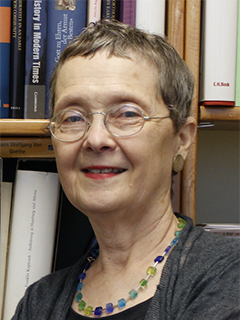 Mary Lindemann
Mary Lindemann
(PhD, University of Cincinnati, 1980; Professor Emeritus) History of Religion, Europe
Mary Lindemann (Ph.D., University of Cincinnati, 1980) is Professor Emerita in the Department of History. Her publications include works on early modern German, Dutch, and Flemish history as well as medical history in the early modern world. Her first book, Patriots and Paupers: Hamburg, 1712-1830 (Oxford University Press, 1990), was named “An Outstanding Academic Book for 1990" by Choice. In 1996 she published Health and Healing in Eighteenth-Century Germany (Johns Hopkins University Press) that received the William H. Welch Medal Book Prize from the American Association of the History of Medicine. Cambridge University Press commissioned a survey, Medicine and Society in Early Modern Europe, that appeared in 1999 (2nd. ed., 2010) for the series “New Approaches to European History”; it has since been translated into Spanish, Portuguese, and Turkish. Her Liaisons dangereuses: Sex, Law, and Diplomacy in the Age of Frederick the Great, appeared in 2006 (Johns Hopkins University Press.) Cambridge University Press published her most recent book, The Merchant Republics: Amsterdam, Antwerp, and Hamburg, 1648-1790, in 2015. She is currently writing “The Fractured Lands: Northern Germany in an Age of Unending War, 1648-1721.” Professor Lindemann has received many major scholarly awards, among them two NEH Fellowships and a John Simon Guggenheim Fellowship. She has been an Alexander von Humboldt/ Reimar-Lüst Fellow at the Free University, Berlin, and a Fellow-in-Residence at the Netherlands Institute for Advanced Study in the Humanities and Social Sciences (NIAS). She is a past president of the American Historical Association and the German Studies Association.
Since her retirement in 2022, Professor Lindemann has remained an active scholar, participating in conferences and publishing. From January through June 2024, she was a Visitor at the Rachel Carson Center for the Environment and Society in Munich, Germany. She recently co-edited Redreaming the Renaissance: Essays on History and Literature in Honor of Guido Ruggiero (Wilmington, DE: University of Delaware Press, 2024) and contributed an article, “Silent Victims: The Hidden Costs of War in Brandenburg, 1648-1700,” to Beyond the Battlefield: Reconsidering Warfare in Early Modern Europe (Abingdon, England: Routledge, 2024). She was commissioned to write an article, “Coming Out of War: The Great German War and Its Aftermath,” for a French publication on Coming Out of War (Paris: Humensis, forthcoming), in addition to submitting articles for (1) a volume on German Cities (Städtegeschichte im 18. Jahrhundert) on “(Proto?) Globalization and the Cities of Post-1648 Germany” and (2) and another article, “Entangled Reconstructions: The Waterscapes of Brandenburg after the Thirty Years War,” for a volume on War Diaries that considers the environmental and ecological impact of wars. In conjunction with Benjamin Marschke, she co-edited a Forum on “Writing German History Biographically,” forthcoming in German History (2025).
Sybil Lipschultz
(PhD, University of Pennsylvania, 1980, Professor Emeritus) U.S., Women and Gender
Janet L. B. Martin
(PhD, Chicago, 1980; Professor Emeritus) Russia
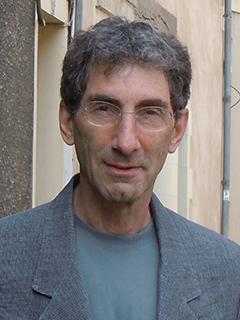 Michael Miller
Michael Miller
(PhD, University of Pennsylvania, 1976; Professor Emeritus) Global Nineteenth Century, Atlantic World History, Europe
Michael Miller was born in Cincinnati and educated at Northwestern (BA 1967) and the University of Pennsylvania (Ph.D. 1976). His principal work has been in the fields of modern French history, modern European history, business history, and maritime history. His scholarly publications include The Bon Marché: Bourgeois Culture and the Department Store, 1869-1920 (Princeton: 1981; French edition 1987) and Shanghai on the Métro: Spies, Intrigue, and the French Between the Wars (Berkeley, 1994). His most recent book is Europe and the Maritime World: A Twentieth-Century History (Cambridge University Press, 2012), which writes the history of globalization by sea across the twentieth century. This book has been awarded the 2013 Hagley Prize for the best book in business history, broadly defined, and the Alfred and Fay Chandler Book Award for 2010-2012. Among the articles he has published from this study are “The Business Trip: Maritime Networks in the Twentieth Century” (Business History Review, 2003) and “Pilgrims’ Progress: The Business of the Hajj” (Past and Present, 2006). His article, “When East Met East: Dutch East Indies Planters and the Ukraine Project (1942-1944),” (Central European History, 2020) was also, initially, drawn from this research.
Currently, he is writing a book about France and its rivers, streams, and canals. Focused largely on the nineteenth century, but reaching back to medieval and Roman times, this project takes up the themes of historical identity, governance, property and built environments, the balance between traditional and modern, and river cities in a country like France. His article, “Lyon: The Meaning of a River City,” in Thaisa Way, ed. River Cities, City Rivers (Dumbarton Oaks, 2018) addresses some of his findings.
Before joining the University of Miami faculty he taught at Rice University and Syracuse University. He has held fellowships from the John Simon Guggenheim Memorial Foundation, the NEH, the ACLS, the German Marshall Fund of the United States, the DAAD, the Fulbright Program, and the Harvard Business School. In Fall 2015 he held a Berlin Prize Fellowship at the American Academy in Berlin. He teaches courses on a variety of subjects, including Modern France, Europe in the Age of Hitler and Stalin, the survey course in Modern Europe, History of the Modern Business Enterprise, The Sea in History, The History of Rivers, and Globalization in Modern Times. In 2014 he received the Provost's Award for Scholarly Activity. In 2017 he was made a Cooper Fellow of the College of Arts & Sciences.
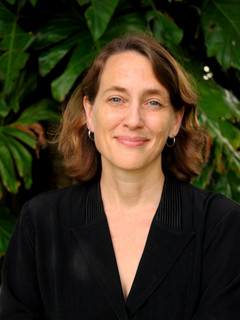 Kate Ramsey
Kate Ramsey
(PhD, Columbia University, 2002; Professor Emeritus) Caribbean Studies
Kate Ramsey’s research and teaching interests include the politics of religion, law, and performance in the Caribbean; histories of medicine and healing in the Atlantic world; museums in/and the Caribbean; and Caribbean intellectual history, artistic production, and social movements. Her first book, The Spirits and the Law: Vodou and Power in Haiti (Chicago, 2011), centers on the history and legacies of penal and ecclesiastical laws against the Vodou religion in Haiti. It won the Berkshire Conference of Women Historians First Book Prize, the Elsa Goveia Book Prize from the Association of Caribbean Historians, the Haitian Studies Association Haiti Illumination Project Book Prize, and a Médaille Jean Price-Mars from the Faculté d’Ethnologie, Université d’État d’Haïti. Ramsey is co-editor with Louis Herns Marcelin of Transformative Visions: Works by Haitian Artists from the Permanent Collection (Lowe Art Museum, 2015), and was co-curator of the exhibition by the same name.
Ramsey’s current research is focused in two ways. One project studies how early writing about and laws against Afro-Caribbean spiritual practices were shaped by medical theories of mind-body interaction during the final decades of British Caribbean slavery. Her article “Powers of Imagination and Legal Regimes against ‘Obeah’ in the Late Eighteenth- and Early Nineteenth-Century British Caribbean” was published in Osiris 36. It was awarded the 2022 Percy G. Adams Prize of the Southeastern American Society for Eighteenth-Century Studies, and the 2023 Forum for History of Human Science Article Prize Honorable Mention. Ramsey is currently working, as well, on the history of Vodou objects confiscated by U.S. marines during the 1915-1934 occupation of Haiti, and thereafter donated or sold to anthropology, natural history, and military museums in the United States and beyond. Based on collaborative research with Rachel Beauvoir-Dominique, this project spotlights the interlinked histories of Afro-Caribbean religion, U.S. imperialism, and museum collecting during the early to mid-twentieth century. Ramsey serves on the Board of KOSANBA: A Scholarly Association for the Study of Haitian Vodou.
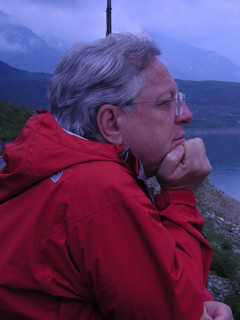 Guido Ruggiero
Guido Ruggiero
(PhD, UCLA, 1972; Professor Emeritus) Renaissance Italy, Gender and Sex, Culture.
Guido Ruggiero came to the University of Miami to serve as Chair of the Department of History from 2003-2010 from The Pennsylvania State University where he was the Josephine Berry Weiss Chair of the Humanities. He received his PhD from UCLA and taught at universities both in Europe and the States before retiring this year from UM where he was also College of Arts and Sciences Cooper Fellow and Professor of History to return full time to his home in Treviso, Italy. Along with his 2015 prize winning rethinking of the Italian Renaissance, The Renaissance in Italy: A Social and Cultural History of the Rinascimento (Cambridge, 2015), he has published among other books: Love and Sex in the Time of Plague, A Decameron Renaissance (Harvard, 2021), Machiavelli in Love: Sex, Self and Society in Renaissance Italy(Johns Hopkins, 2007), Binding Passions: Tales of Magic, Marriage and Power from the End of the Renaissance (Oxford, 1993), The Boundaries of Eros: Sex Crime and Sexuality in Renaissance Venice (Oxford, 1985), Violence in Early Renaissance Venice (Rutgers, 1980), as well as the edited volume The Blackwell Companion to the Worlds of the Renaissance (Blackwell, 2002) and the co-edited volumes Historizing Life-Writing and Egodocuments in Early Modern Europe, (Palgrave/Macmillan, 2022) Sex and Gender in Historical Perspective (Johns Hopkins, 1990), Microhistory and the Lost Peoples of Europe (Johns Hopkins, 1991), History from Crime (Johns Hopkins,1993), and the six volume Encyclopedia of European Social History (Sribner’s, 2002), and translated with Laura Giannetti, Five Comedies from the Italian Renaissance (Johns Hopkins, 2003). He also edited the series Studies in the History of Sexuality (13 volumes, Oxford, 1985-2002). At present he is working on biographies and the “disordered appetites” of fictional characters in Matteo Bandello’s massive collection of novelle. Ruggiero is an elected member of the Ateneo Veneto; has won numerous grants and awards including a Guggenheim in 1992; and has been a fellow or visiting professor at The Institute for Advanced Study at Princeton (1981-82, 1990-91); Harvard’s Villa I Tatti, Florence (1991-1992, 2012) and the American Academy in Rome (Fall, 2011).
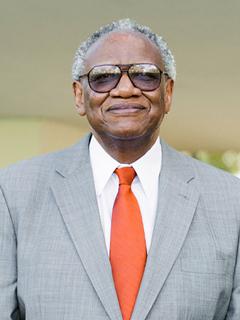 Donald Spivey
Donald Spivey
(Ph.D., University of California, 1976; Professor Emeritus)
Donald Spivey was born and reared in Chicago and attended the University of Illinois at Urbana-Champaign where he received his B.A., "with distinction in history" (1971) and a M.A. in history (1972), and from there to the University of California at Davis where he earned his Ph.D. in history (1976). He specializes in U.S. history since 1865, African-American history, sport, labor, music, and education.
Professor Spivey has lectured throughout the country and been a frequent commentator on radio, television, and in the print medium. See, for example, his lecture on “Satchel Paige and Negro Leagues Baseball in the Civil Rights Movement” broadcasted on C-SPAN: http://www.c-span.org/person/?donaldspivey; and presentation on “The Historical Richness of Black Baseball in the New Negro Movement, 1919-1941,” at the National Endowment for the Humanities, Washington University Humanities Center Summer Institute: https://cenhum.artsci.wustl.edu/nnr-lectures
His book publications include Racism, Activism, and Integrity in College Football: The Bates Must Play Movement (2021); Black Pearls of Wisdom: Voicing the African-American Journey for Freedom, Empowerment, and the Future (2014); Step Forward the Hero: The Story of Milton L. Olive, III, First African American Awarded the Medal of Honor in the Vietnam War (2014); "If You Were Only White": The Life of Leroy “Satchel” Paige (2012); Fire From the Soul: A History of the African-American Struggle (2003); The Politics of Miseducation: The Booker Washington Institute of Liberia, 1929-1984 (1986); Sport in America: New Historical Perspectives (1985); Union and the Black Musician: The Narrative of William Everett Samuels and Chicago Local 208 (1984); Schooling For the New Slavery: Black Industrial Education, 1868-1915 (1978; paperback, 2007); and numerous scholarly articles in such journals as International Journal of the History of Sport, Journal of Sport History, Journal of Negro History, Phylon, Chronicles of Oklahoma, and Social Science Quarterly. He has taught at the University of California at Davis; Wright State University; the University of Michigan; the University of Connecticut, where he was founding director of the Institute for African-American Studies; and joined the University of Miami in 1993.
Spivey has received numerous recognitions including the Faculty Senate Award for Outstanding Teaching; Provost’s Award for Scholarly Activity; selection as a “Top Black Educator of South Florida” by Legacy Magazine; the Robert Peterson Recognition Award for his book, "If You Were Only White": The Life of Leroy “Satchel” Paige; Cooper Fellow of the College of Arts and Sciences; the Ronald McDonald House “Twelve Good Men Award” for Distinguished Community Service in Miami; and appointment to the Search Committee for Historian of the United States House of Representatives. He currently serves as Special Advisor on Racial Justice to President Frenk.
Spivey’s team-taught course on “The Sixties” is one of the most popular courses at the University. For more information on the course, please visit the website at: scholar.library.miami.edu/sixties.
Visit Don Spivey’s blog at: https://www.firefromthesoul.com/
Steve Stein
(PhD, Stanford, 1974; Professor Emeritus) Latin America



 Mary Lindemann
Mary Lindemann Michael Miller
Michael Miller Kate Ramsey
Kate Ramsey Guido Ruggiero
Guido Ruggiero Donald Spivey
Donald Spivey